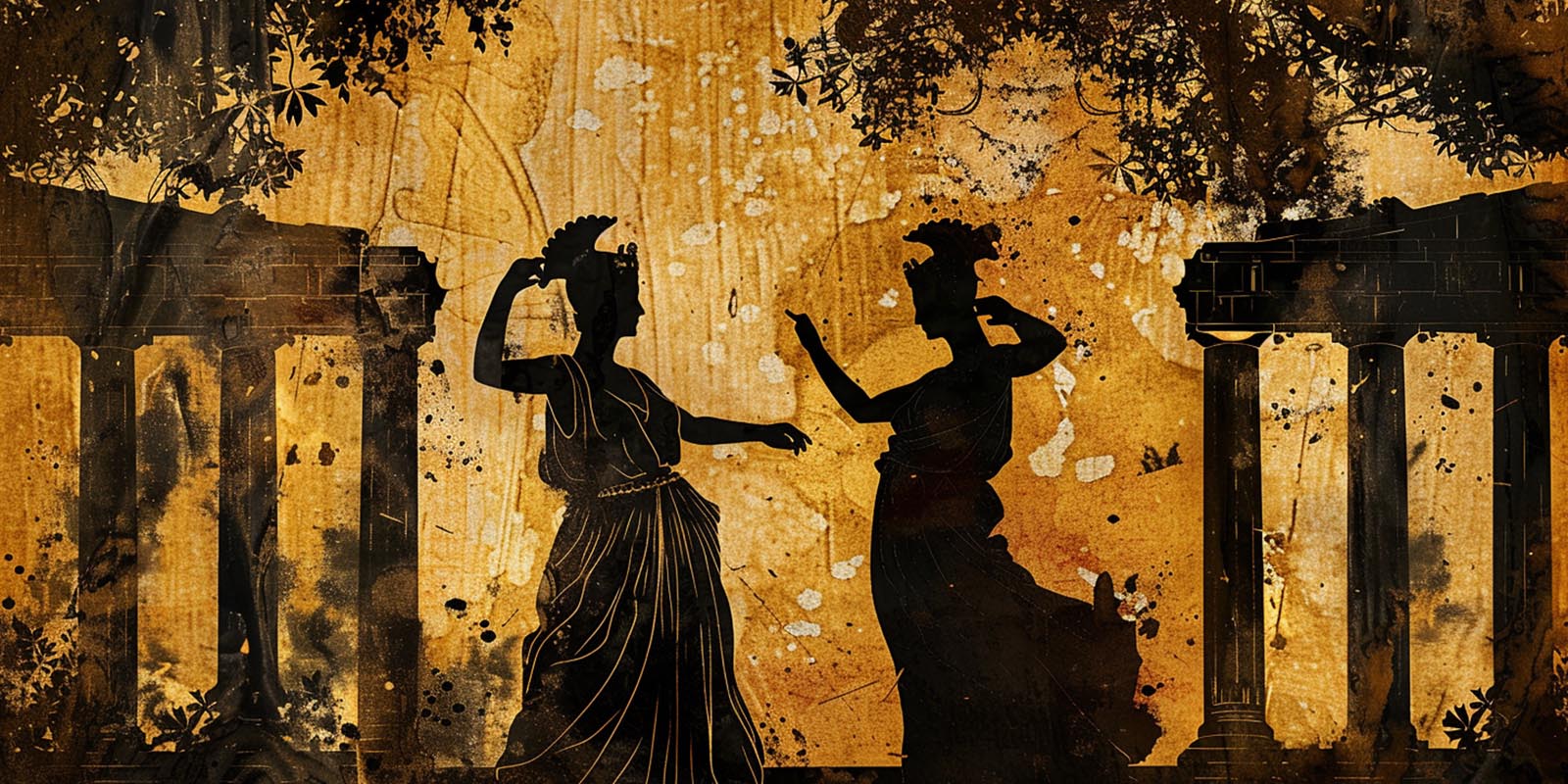

Ancient Greek drama festivals were a central aspect of Greek culture and religious life, combining theatrical performances with communal celebrations in honor of the gods. These festivals, particularly those dedicated to Dionysus, the god of wine, fertility, and theater, were significant cultural events that showcased the dramatic arts and played a vital role in the social and religious fabric of Greek society.
Dionysia: The City Dionysia, held in Athens, was the most prestigious of the drama festivals. Established in the 6th century BCE, this festival took place in the spring and included a series of dramatic competitions over several days. The festival began with a grand procession and sacrifices to Dionysus, followed by performances of tragedies, comedies, and satyr plays. Renowned playwrights like Aeschylus, Sophocles, Euripides, and Aristophanes presented their works, competing for prizes awarded by a panel of judges.
Lenaia: The Lenaia was another important festival dedicated to Dionysus, held in Athens during the winter. It was a smaller and more localized event compared to the City Dionysia, focusing primarily on comedic performances. The Lenaia provided an opportunity for playwrights to experiment with new material and gain recognition for their comedic talents. It also included processions, sacrifices, and public feasting, emphasizing communal participation and religious devotion.
Rural Dionysia: The Rural Dionysia was celebrated in the rural demes (districts) of Attica, allowing citizens outside Athens to partake in the dramatic festivities. This festival took place in the late fall or early winter and featured local performances of drama, often in open-air theaters or temporary stages. The Rural Dionysia reinforced community bonds and provided a platform for local talent to be showcased alongside the prominent Athenian festivals.
Structure of Performances: The performances at these festivals followed a structured format, beginning with a prologue to set the scene, followed by alternating episodes of dialogue and choral odes. The chorus played a central role, offering commentary, reflections, and interactions with the characters. Tragedies typically explored profound themes of fate, morality, and human suffering, while comedies often employed satire and humor to critique social and political issues.
Theater of Dionysus: The primary venue for the City Dionysia was the Theater of Dionysus, located on the southern slope of the Acropolis in Athens. This open-air theater could accommodate thousands of spectators and was the site of many famous performances. The theater's design, with its semi-circular seating arrangement and excellent acoustics, allowed large audiences to engage with the performances, fostering a shared cultural experience.
Significance and Impact: The drama festivals were more than just entertainment; they were integral to the civic and religious life of the Greeks. They served as a platform for discussing contemporary issues, exploring ethical dilemmas, and reinforcing social values. The themes and stories presented in the dramas reflected the complexities of human existence and the relationship between mortals and the divine. The festivals also provided opportunities for playwrights to gain fame and for actors and chorus members to demonstrate their skills.
Legacy: The legacy of ancient Greek drama festivals is profound, influencing the development of theater and dramatic arts in Western culture. The works of Greek tragedians and comedians have been studied, performed, and adapted for centuries, highlighting their timeless relevance and artistic excellence. The festivals themselves exemplified the importance of communal celebration, artistic expression, and religious observance in ancient Greek society, leaving a lasting imprint on the cultural heritage of the Western world.

The Theater of Dionysus in Athens, the primary venue for the City Dionysia, could seat up to 17,000 spectators. Its design set the standard for Greek theaters, with features such as a large circular orchestra for the chorus and tiered seating to accommodate large audiences, ensuring everyone could see and hear the performances.
Ancient Greek art and architecture, with its harmonious proportions and timeless elegance, continue to inspire awe and admiration millennia later.
Discover
Greek mythology, a rich tapestry of gods, heroes, and mythical creatures, captivates the imagination with its tales of love, betrayal, and epic adventures that delve into the depths of the human psyche.
Discover
Ancient Greek history, marked by remarkable achievements in democracy, philosophy, and warfare, shaped the foundation of Western civilization, leaving an indelible legacy of innovation and cultural influence that continues to resonate to this day.
Discover
The ancient Greek Olympics, held in Olympia every four years, celebrated athleticism, unity, and cultural pride, serving as a testament to the enduring spirit of competition and excellence that transcends time and borders.
Discover
Ancient Greek wars, such as the Persian Wars and the Peloponnesian War, were pivotal conflicts that shaped the course of history, highlighting the struggle for power, independence, and the clash of civilizations in the ancient Mediterranean world.
Discover
Ancient Greek culture and society, characterized by its emphasis on art, philosophy, and civic engagement, fostered a vibrant intellectual and social landscape where innovation flourished, democracy thrived, and the pursuit of knowledge and excellence was celebrated as fundamental values of civilized life.
Discover
Find out more about ancientgreece.com